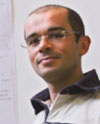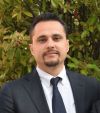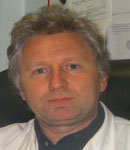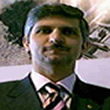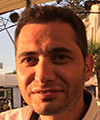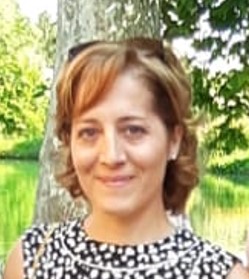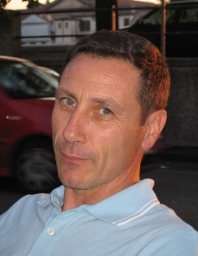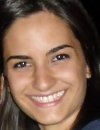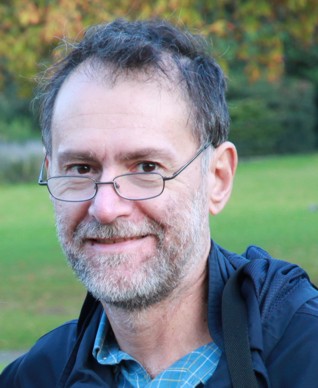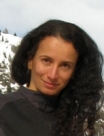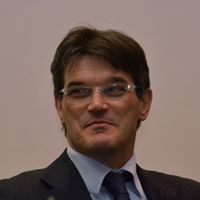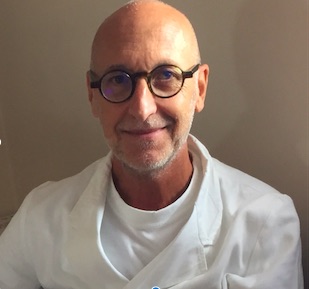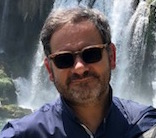Studying at the University of Verona
Here you can find information on the organisational aspects of the Programme, lecture timetables, learning activities and useful contact details for your time at the University, from enrolment to graduation.
Academic calendar
The academic calendar shows the deadlines and scheduled events that are relevant to students, teaching and technical-administrative staff of the University. Public holidays and University closures are also indicated. The academic year normally begins on 1 October each year and ends on 30 September of the following year.
Course calendar
The Academic Calendar sets out the degree programme lecture and exam timetables, as well as the relevant university closure dates..
| Period | From | To |
|---|---|---|
| MOTORIE 1° semestre | Oct 1, 2019 | Jan 24, 2020 |
| MOTORIE 2° semestre | Mar 2, 2020 | May 31, 2020 |
| Session | From | To |
|---|---|---|
| Sessione invernale | Jan 27, 2020 | Feb 28, 2020 |
| Sessione straordinaria | Jan 28, 2020 | Feb 28, 2021 |
| Sessione estiva | Jun 3, 2020 | Jul 5, 2020 |
| Sessione autunnale | Aug 26, 2020 | Sep 30, 2020 |
| Session | From | To |
|---|---|---|
| Sessione Invernale 19/20 | Mar 16, 2020 | Apr 3, 2020 |
| Sessione Estiva 19/20 | Jul 6, 2020 | Jul 28, 2020 |
| Sessione Autunnale 19/20 | Oct 12, 2020 | Nov 3, 2020 |
| Sessione straordinaria 19/20 | Mar 16, 2021 | Apr 9, 2021 |
| Period | From | To |
|---|---|---|
| Festa di Ognissanti | Nov 1, 2019 | Nov 1, 2019 |
| Festa dell'Immacolata | Dec 8, 2019 | Dec 8, 2019 |
| Vacanze di Natale | Dec 23, 2019 | Jan 6, 2020 |
| Vacanze di Pasqua | Apr 10, 2020 | Apr 14, 2020 |
| Festa della Liberazione | Apr 25, 2020 | Apr 25, 2020 |
| Festa del lavoro | May 1, 2020 | May 1, 2020 |
| Festa del Santo Patrono | May 21, 2020 | May 21, 2020 |
| Festa della Repubblica | Jun 2, 2020 | Jun 2, 2020 |
Exam calendar
Exam dates and rounds are managed by the relevant Exercise Science Teaching and Student Services Unit.
To view all the exam sessions available, please use the Exam dashboard on ESSE3.
If you forgot your login details or have problems logging in, please contact the relevant IT HelpDesk, or check the login details recovery web page.
Should you have any doubts or questions, please check the Enrollment FAQs
Academic staff
 elena.antelmi@univr.it
elena.antelmi@univr.it
 paola.cesari@univr.it
paola.cesari@univr.it
 tomas.chiaramonte@univr.it
tomas.chiaramonte@univr.it
 paolo.dellaquila@univr.it
paolo.dellaquila@univr.it
 anna.pedrinolla@univr.it
anna.pedrinolla@univr.it
 nicola.rovetti@univr.it
nicola.rovetti@univr.it
Study Plan
The Study Plan includes all modules, teaching and learning activities that each student will need to undertake during their time at the University.
Please select your Study Plan based on your enrollment year.
1° Year
| Modules | Credits | TAF | SSD |
|---|
2° Year activated in the A.Y. 2020/2021
| Modules | Credits | TAF | SSD |
|---|
| Modules | Credits | TAF | SSD |
|---|
| Modules | Credits | TAF | SSD |
|---|
| Modules | Credits | TAF | SSD |
|---|
1 module among the followingLegend | Type of training activity (TTA)
TAF (Type of Educational Activity) All courses and activities are classified into different types of educational activities, indicated by a letter.
Didactics and Special Pedagogy (2020/2021)
Teaching code
4S00114
Teacher
Coordinator
Credits
6
Language
Italian
Scientific Disciplinary Sector (SSD)
M-PED/03 - METHODOLOGIES OF TEACHING AND SPECIAL EDUCATION
Period
2° semestre motorie dal Mar 1, 2021 al May 31, 2021.
Learning outcomes
This program offers a pedagogical and educational prospect to the students in analazing, interpreting and managing the different special educational needs of children, young people, grown-ups and old people who are involved in a project whose main aim is the promotion of motor adapted activities. At the end of the course, students will have improved the following knowledge and skills: - Knowledge of the fundamental theoretical eferences that inspired the special education; - knowledge of theories, of pedagogical type, concerning the disability; - Knowledge of the teaching methods through which it is possible to design inclusive education; - Knowledge of the different types of disabilities; - Know how to design a special educational intervention through motor activities; - Being able to find pertinent and effective sources.
Program
During the lectures, the following subjects will be treated:
The bio-psicho-social paradigm (ICF, 2001);
The “normal speciality” (Salamanca Meeting, 1994);
The change from the viewpoint of “handicap” to the viewpoint of
“Special Educational Needs” (with reference to the International literature)
The disability is a problem of functioning;
The educational problems of the relationship with disable people, with particular attention to the different conditions of special need and in relation to the various life ages;
Educational postures and educational special actions;
The purposes of the special educational work: the life quality applied to disable people;
Disability and aging;
The special educational function of the motor adapted activities;
The problems of the special educational relation.
In the course online platform will be made available to students additional educational materials.
Exam books:
Lascioli Angelo, Educazione speciale. Dalla teoria all’azione, Franco Angeli, Milano, 2011;
Sangalli Angelo Luigi, Attività motoria compensativa, UnoEdizioni, Trento, 2003.
Within the course, different types of didactic methods will be activated:
- Frontal and / or distance lessons;
- Reading and comment of excerpts;
- Case studies (concerning the Kindergarten and Primary School);
- Laboratory activities;
- Vision of short movies;
- Experiences from the professional context.
For further investigation:
Magnanini Angela, Educazione e movimento. Corporeità e integrazione sociale dei diversamente abili, Edizioni del Cerro, 2008;
Carboni Mauro, Le tracce del corpo i riflessi dello sguardo. Pratiche e gesti dell'aiuto educativo, Pensa Multimedia, 2012.
| Author | Title | Publishing house | Year | ISBN | Notes |
|---|---|---|---|---|---|
| Angelo Luigi Sangalli | Attività motoria compensativa (nuova edizione) | Trento UnoEdizioni | 2021 | Ultima edizioni, in uscita nel 2021 | |
| Lascioli, A. | Educazione speciale. Dalla teoria all’azione | Franco Angeli | 2011 | 9788856846485 |
Examination Methods
The assessment for learning will take place through a written examination paper that will consist of presenting a series of closed questions and open questions concerning the topics discussed during the course.
The following assessment criteria will be considered:
- Including the relevant elements that are the basis of the special education;
- Including the elements that characterize special education action;
- Being able to expose their arguments strictly and in a limited time by identifying and selecting the essential elements for exposure;
- Being able to analyse critically the case studies and the experiences presented.
Non-attending students can find useful information to pass the exam by reading and studying the reference books.
"In relation to the situation deriving from the Coronavirus emergency, the examination methods reported above may be subject to changes"
Type D and Type F activities
| years | Modules | TAF | Teacher | |
|---|---|---|---|---|
| 1° | Anthropometry | D |
Carlo Zancanaro
(Coordinator)
|
|
| 1° | Physiology of sport nutrition | D |
Silvia Pogliaghi
(Coordinator)
|
|
| 1° | Biochemistry for sport | D |
Massimo Donadelli
(Coordinator)
|
|
| 1° | Methodology of sport activities measures | D |
Luca Paolo Ardigo'
(Coordinator)
|
|
| 2° | Adapted motor learning | D |
Mirta Fiorio
(Coordinator)
|
|
| 2° | Physical bases of exercise prescription | D |
Silvia Pogliaghi
(Coordinator)
|
|
| 2° | Advanced nutrition for sports | D |
Silvia Pogliaghi
(Coordinator)
|
|
| 2° | Sport physiology | D |
Silvia Pogliaghi
(Coordinator)
|
|
| years | Modules | TAF | Teacher | |
|---|---|---|---|---|
| 1° | Sports and drugs | D |
Roberto Leone
(Coordinator)
|
|
| 1° | Forensic medicine and social security | D |
Aldo Eliano Polettini
(Coordinator)
|
|
| 1° | Research methodology applied to sport | D | Not yet assigned | |
| 1° | Statistics applied to movement sciences | D |
Maria Elisabetta Zanolin
(Coordinator)
|
|
| 2° | Neuromotor rehabilitation | D |
Nicola Smania
(Coordinator)
|
|
| 2° | Theory and pedagogy of nordic walking | D |
Barbara Pellegrini
(Coordinator)
|
|
| 1° 2° | Neurological diseases and movement disorders | D |
Michele Tinazzi
(Coordinator)
|
|
Career prospects
Module/Programme news
News for students
There you will find information, resources and services useful during your time at the University (Student’s exam record, your study plan on ESSE3, Distance Learning courses, university email account, office forms, administrative procedures, etc.). You can log into MyUnivr with your GIA login details: only in this way will you be able to receive notification of all the notices from your teachers and your secretariat via email and soon also via the Univr app.
Graduation
List of theses and work experience proposals
Student mentoring
Gestione carriere
Orario lezioni
L’orario delle lezioni comprende
Lezioni Frontali in aula
Esercitazioni e laboratori
Questi ultimi sono organizzati per gruppi dai singoli docenti responsabili dei corsi.
L'orario è pubblicato nel portale studenti
Modalità di frequenza
Vige l'obbligo di frequenza al 70% come specificato nel Regolamento di ogni singolo corso di laurea e laurea magistrale:
Ulteriori informazioni:
L'accesso alle pagine Moodle dei singoli insegnamenti è vincolato alla compilazione del piano di studi.
App Univr Lezioni, FAQ e guida all'utilizzo sono disponibili al seguente link: orario-lezioni-e-modalita-di-frequenza
Comunicati: Avvisi per studenti
Internships
Internships are aimed at enabling students to gain direct knowledge of the world of work and to acquire specific professional skills.
Internships are carried out under the responsibility of an individual lecturer, and can be carried out in professional firms, public administration bodies and companies recognised by the University of Verona.
Any CFU credits gained by doing internships will be recognised and recorded by the University in accordance with the relevant University regulations in force (Regolamento d’Ateneo per il riconoscimento dei crediti maturati negli stage universitari).
For further information on internships, please go to: https://www.univr.it/it/i-nostri-servizi/stage-e-tirocini.
Linguistic training CLA
Certificazione medica di idoneità
Riferimenti normativi principali: DM 24 aprile 2013 art. 3, GU 169 del 20-07-2013; Decreto del Ministro della Salute dell’8 agosto 2014 e s.m.i.
Per frequentare le attività dei corsi di Laurea e Laurea magistrale di Scienze motorie è obbligatorio presentare la certificazione medica di idoneità fisica per attività sportiva non agonistica. La certificazione è necessaria per accedere alle attività pratiche-esercitative e al tirocinio.
à COME OTTENERE LA CERTIFICAZIONE
La certificazione - riportante l’indicazione che è stato eseguito l’ECG a riposo - può essere rilasciata da:
- centri o servizi di medicina dello sport delle ASL (ora ATS) e delle aziende ospedaliere
- istituti della Federazione Medico Sportiva Italiana
- centri pubblici o privati autorizzati:
- dai medici di medicina generale di libera scelta, relativamente ai propri assistiti;
- dal medico specialista in medicina dello sport.
L’ECG a riposo deve essere ripetuto annualmente.
E’ ammesso anche il certificato medico di idoneità alla pratica sportiva agonistica, per chi ne fosse già in possesso.
à SCADENZA PER LA PRESENTAZIONE
La certificazione medica deve essere prodotta al momento dell'immatricolazione e, comunque, entro l’inizio delle lezioni alla Segreteria Corsi di Studio Scienze motorie. Spetta agli studenti rinnovarla annualmente alla scadenza - per ogni anno di iscrizione in corso o fuori corso. La Segreteria effettuerà periodicamente dei controlli sulla consegna dei certificati.
NOTA: Studenti immatricolati a seguito di SUBENTRO/RIPESCAGGIO/TRASFERIMENTO IN INGRESSO: se non è possibile rispettare la scadenza di presentazione del certificato sopra indicata, avvisare la Segreteria Corsi di Studio Scienze, scrivendo all’indirizzo certmed.scienzemotorie@ateneo.univr.it
à MODALITA’ DI CONSEGNA
La certificazione va inviata alla Segreteria Corsi di Studio Scienze motorie dalla propria e-mail istituzionale nome.cognome@studenti.univr.it all’indirizzo certmed.scienzemotorie@ateneo.univr.it.
Student login and resources
Competenze linguistiche
DOPO LA LAUREA TRIENNALE
Per proseguire gli studi in uno dei corsi di Laurea Magistrale dell'ambito delle Scienze motorie è necessario possedere competenze linguistiche almeno di livello B1 informatizzato (o superiore) specificamente di lingua inglese, poichè i corsi di studio di livello superiore prevedono nel proprio piano didattico la presenza di insegnamenti o di moduli impartiti dai docenti direttamente in inglese.
Inoltre, tali competenze costituiscono requisito di accesso indispensabile per poter partecipare alla prova di ìngresso oppure per iscriversi ad una laurea magistrale.
La conoscenza di altre lingue diverse dall'Inglese NON può venire riconosciuta come "requisito" utile per l'accesso ai corsi di laurea magistrale. Tuttavia, la certificazione posseduta potrà essere valutata da un'apposita Commissione di docenti ed eventualmente riconosciuta in termini di crediti (CFU) a scelta dello studente, presentando domanda al momento dell'immatricolazione.
Si invita a leggere con attenzione i bandi di concorso annuali per l'ammissione ai corsi di laurea magistrali per maggiori informazioni - consultare nel sito del corso di studio anche la sezione "Iscriversi".
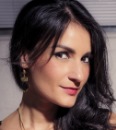

 +39 045 842 5117
+39 045 842 5117

